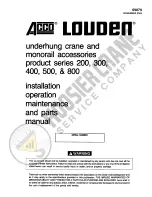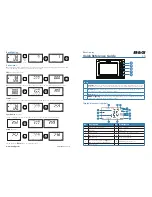
A
B
Figure 17
Figure 18
A
14
VANGUARD
X
P
Total Knee System
eXPert Advice: A narrow (approximately 12–13 mm) saw
blade should be used for the posterior and posterior
chamfer resections to prevent saw blade contact with the
ACL protector.
• When making the posterior bone and posterior chamfer
resections, the narrow sawblade should not be angled
behind the ACL protector and extra care should be
taken to protect the ACL.
Note:
• After making the anterior resection, inspection of the
anterior resection relative to the anterior cortex can
be assessed.
• If downsizing is possible, the initial block can be removed
and the smaller sized block replaced. The anterior
femur and chamfer then can be resected.
eXPert Advice: A femoral notchplasty should be
performed to remove osteophytes, increasing visualization
of the femoral notch to ensure the ACL has adequate
clearance.
4-in-1 Femoral Cuts
• Choose the Vanguard XP femoral 4-in-1 block that
matches the selected size (from 32-700000 to 32-
700010) (Figure 17A).
• Assemble the ACL protector (32-700370) into the back
of the femoral 4-in-1 block (Figure 17B).
• Place the block into the 1/8" distal femur holes.
Note: A 1.37 mm feeler blade (32-486000) can be used to
determine the amount of anterior bone resection.
• Ensure the block is sitting flush against the distal femur
with the ACL protector secured in place.
• If additional stability is required, 1/8" quick release
drill pins (32-467619) or the threaded headed pins
(32-700380) can be placed in the angled side holes
provided on the femoral 4-in-1 block (Figure 18A).
• Once the block position is satisfactory, resect the
anterior and posterior bone and the anterior and
posterior chamfers with a 1.4 mm thick saw blade in a
standard and narrow configuration (Figure 18).
Femoral Preparation
Summary of Contents for VANGUARD XP
Page 1: ...Surgical Technique ...
Page 39: ......
















































